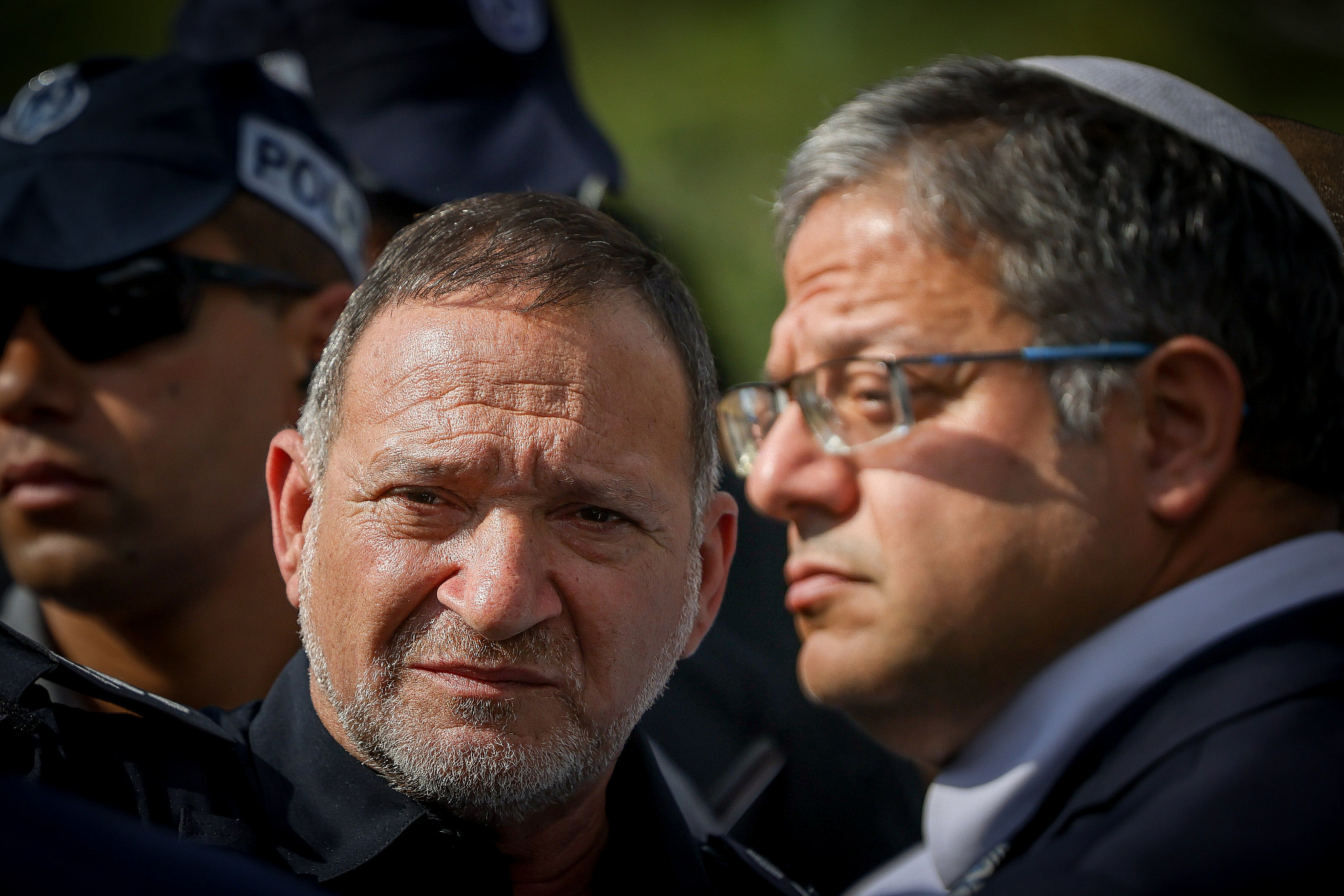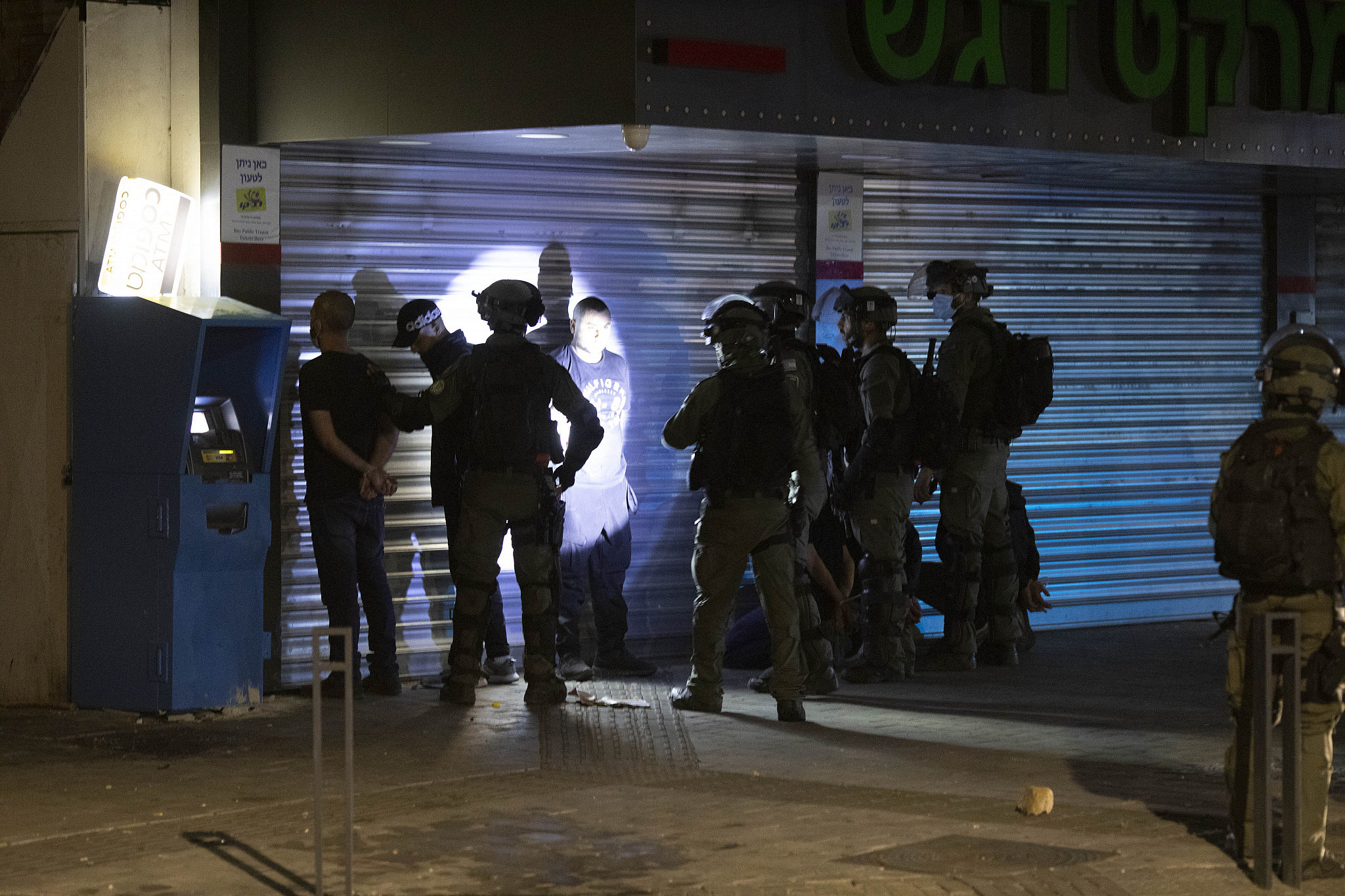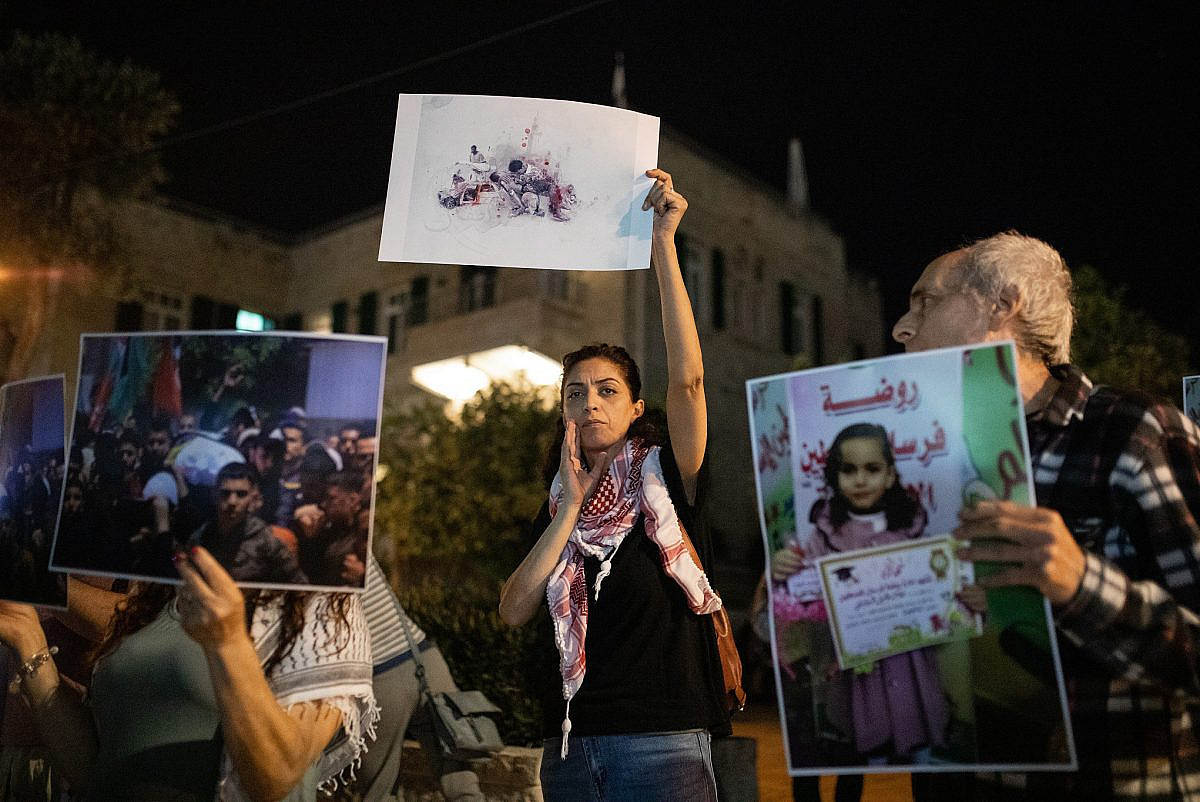Last Saturday evening, the scenario that every Palestinian citizen of Israel has spent the past three weeks fearing began to materialize: a mob of hundreds of belligerent Jewish Israelis attempted to break into the dormitories at Netanya Academic College, where some 50 Arab students were trapped inside, fearing for their lives. For a while, the Israeli police did not intervene as the mob shouted “Death to Arabs” and “Go back to Gaza,” and tried to force their way in. Eventually, the students were rescued with the help of volunteers and under police protection.
In the wake of these scenes, I am confident that every Arab mother who, like me, has a child studying in Israeli academic institutions, will be having trouble sleeping at night out of fear that her son or daughter will be the victim of a lynching.
This incident in Netanya didn’t come out of nowhere; it is a direct consequence of the atmosphere of repression and political persecution that has taken hold in Israel since the Hamas massacres of Oct. 7. Parallel to Israel’s assault on the besieged Gaza Strip, and the settler-army violence that is forcibly displacing Palestinian communities across the West Bank, Israel is turning the Palestinians inside the state into another front in its war.
No blood has yet been spilled, but the atmosphere is already brimming with intimidation and threats of violence with one clear goal: to punish Arab citizens for the crime of belonging to the Palestinian people.
Escalating threats
Since the onset of the war, Israeli authorities has launched a massive arrest campaign targeting Palestinian citizens who express any kind of identification with their brethren in Gaza. Jewish students at colleges and universities have been enlisted into cyber armies to hunt for culprits. The police chief, Kobi Shabtai, has threatened to bus to Gaza any Palestinian citizen of Israel who goes out to the streets in protest.

Prominent public figures have not been spared from this persecution. Palestinian singer and neuroscientist Dalal Abu Amneh and actress Maisa Abd Elhadi were both arrested over social media posts. Many others who dared to quote from the Qur’an, a poem, or even a fairy tale about a biblical tyrant who met his demise because of evil actions — as Dr. Jawad Atrash of Sha’are Zedek Hospital shared on social media — have fallen victim to the campaign of incitement.
The crackdown is being led by right-wing Knesset members, who have wasted no time in seizing the opportunity presented by the state of emergency. It was reported last week that Justice Minister Yariv Levin and Interior Minister Moshe Arbel are even exploring the possibility of advancing legislation to revoke the citizenship or residency status of anyone who “engages in terrorism, supports terrorism, incites terrorism, or identifies with a terrorist act” — “terrorism,” of course, being an extremely broad term that can be weaponized against anything that even remotely expresses Palestinianness.
In a statement, the Haifa-based legal center Adalah said that the ministers are displaying “a clear intention to cynically exploit the current state of national emergency to send a message to Palestinian citizens that their status and rights are conditional upon their rejection of their own national identity, and that they face the threat of expulsion from their ancestral homeland.”
Israel’s National Security Minister, Itamar Ben Gvir, further escalated the situation on Monday night by publicly inciting against Ahsan Kanaan, a judge at the Haifa Magistrates’ Court, for his decision to release a left-wing Jewish-Israeli activist from detention. “This is what internal enemies look like,” Ben Gvir wrote on X (formerly Twitter). Within hours, the post had been widely disseminated on various social media platforms, and right-wing activists began searching for the judge’s address. Some even called to confront him physically.
Peak functionality
We witnessed a similar atmosphere of mob violence and incitement against Palestinian citizens of Israel during the events of May 2021. Back then, I found myself on the end of it after a televised argument with a right-wing Israeli journalist, in which I had the audacity to compare the tears of a bereaved mother in Gaza to those of a bereaved mother in Sderot. I subsequently received hundreds of phone calls and messages, which included such vivid threats as, “We’ll rape you and throw pieces of your meat to fish on Gaza’s beaches.” When I filed a complaint with the police, they offered me a free tip: “Learn to keep your mouth shut when there’s a war.”

This time around, I really did try to keep my mouth shut. I decided to focus on my inner thoughts and feelings to digest the magnitude of the tragedy that occurred to us, and to mourn alone for the victims of this cursed conflict, Jews and Palestinians alike. I decided to support those who need me and to be in solidarity with those who also want real peace, and are tired of another war and the murder of innocent men, women, children, and elderly people.
It was clear from the start that the “bloodometer” would not at all be balanced, and that the bloodletting upon Palestinians would reach an ugly peak that we had not seen before. But there is room in the heart for Israeli victims, too. It is very hard to bear the thought of a kidnapped 3-year-old Jewish girl, frightened, somewhere underground in Gaza, not even knowing that over 3,000 Palestinian children have been murdered just above her.
Israel’s police chief knows full well that most Palestinian citizens of Israel identify with the innocent victims in Gaza and are sure this war will leave a deep wound in their hearts. He also knows that Arab society and its leaders have conducted themselves with exemplary responsibility and restraint since the outbreak of the war so as not to endanger anyone. Elected officials, Knesset members, mayors, clerics, and educators are trying to calm the Arab street, calling on parents, youth, and activists to protect themselves and refrain from any actions that could be interpreted as hostile.
Most read on +972
Nevertheless, in the past three weeks — and after a year in which their inaction allowed the murder of some 200 Arabs through gun violence and crime — Israeli police have suddenly reached peak functionality in its ability to crack down on Palestinian citizens. And it is clear that even if each one of us shuts our mouths, and even if all 1.5 million Palestinian citizens sign a declaration of allegiance to the state, strongly condemn Hamas’ actions, or are killed by Hamas missiles, it will not change a thing.
For Shabtai, Ben Gvir, and Netanyahu, it doesn’t matter that Arab doctors are treating wounded Israelis; that Arab psychologists and social workers are helping to support war victims; that Arab teachers are still educating for peace, tolerance, and love; or that Arab workers are continuing to build, remove garbage, and cultivate the land. All this is insignificant. As far as they’re concerned, there is a seat reserved for all of us on the buses to Gaza.
A version of this article was first published in Hebrew on Local Call. Read it here.





